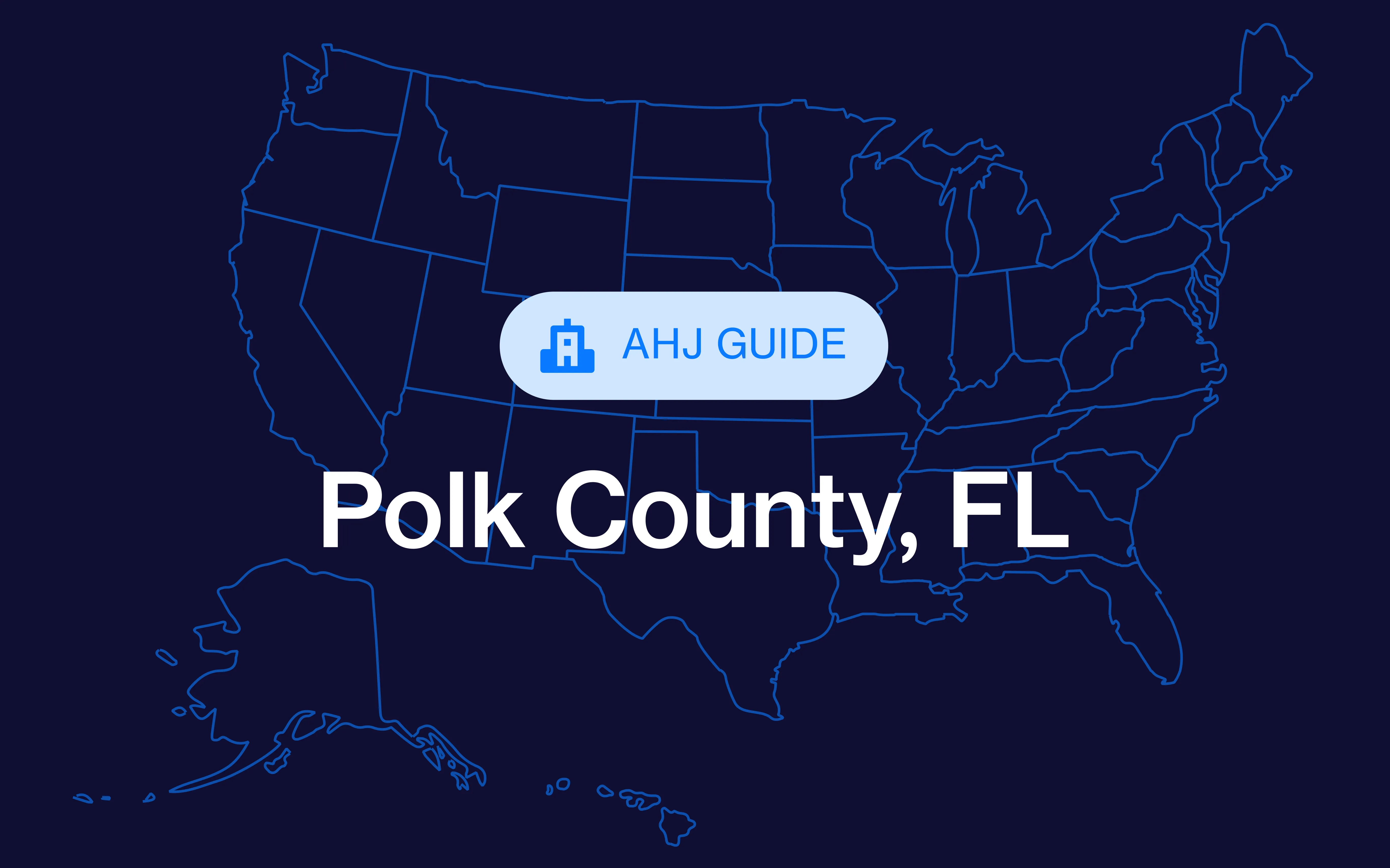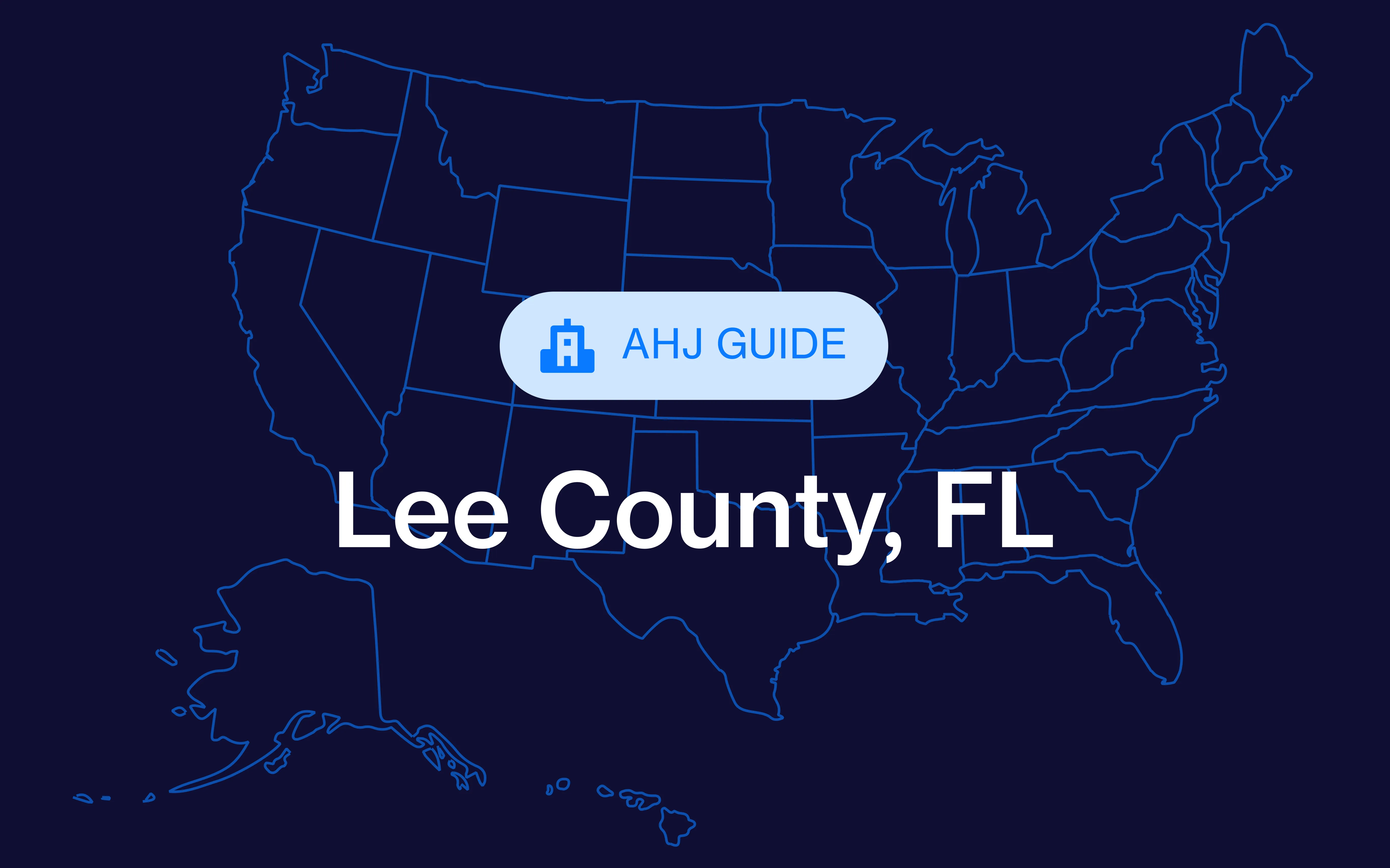Navigating the building permitting process in Charleston, South Carolina can be daunting, but understanding the requirements, fees, and timeline can make it smoother.
Whether you’re re-roofing your home or installing solar panels, knowing what permits you need and the associated costs can save you time and money. For instance, a permit for installing a new roof might cost around $100-$200, while installing solar panels could cost $300-$500 in permit fees alone. This guide will help homeowners, contractors, and developers grasp what’s needed to get their projects approved efficiently.
Requirements for permits in Charleston
In Charleston, SC, obtaining a building permit involves several steps and requirements. Here’s a detailed breakdown:
Permit application
- Application form: Complete the building permit application form available on the City of Charleston's official website or at the Building Inspections Division office.
- Supporting documents: Depending on the type of project, you may need to submit architectural drawings, site plans, structural calculations, and other relevant documents.
- Contractor's license: Ensure that the contractor holds a valid South Carolina Contractor’s License and a City of Charleston Business License.
- Project valuation: Provide documentation supporting the total construction cost, including labor, materials, overhead, and profit. A ratified contract or detailed cost estimate may be required.
Plan review
- Projects exceeding $1,000 in valuation require a plan review. This involves submitting detailed plans for review by the Building Inspections Division.
- The plan review fee is typically 50% of the building permit fee.
Additional approvals
- Depending on the project, additional approvals might be needed from the Fire Marshal’s Division, Engineering Services, Zoning Appeals, and the Technical Review Committee.
- Projects in historic districts may require approval from the Board of Architectural Review (BAR) or the Design Review Board (DRB).
Fees
- An application fee of $40 is required for all permits.
- Specific fees for plan reviews, inspections, and other services apply
Charleston building permit fees
The fees for building permits in Charleston, SC, vary depending on the type and scale of the project.
Here is a summary of the fees:
- Permit application Feee: $40 (non-refundable)
- Plan review fee: 50% of the building permit fee
- Residential new construction: Based on valuation
- Commercial construction: Based on valuation
- Trade/sub-permits: Electrical, plumbing, mechanical, fuel gas (fees vary, see details)
- Re-inspection fee: $100 per re-inspection
- Penalties: Double the permit fee for work started without a permit
- Refunds: Available for un-rendered services (approval required)
Building permit fees for new residential construction
- $1,000 or less: Application fee only
- $1,001 to $50,000: $15 for the first $1,000 plus $5 for each additional $1,000
- $50,001 to $100,000: $260 for the first $50,000 plus $4 for each additional $1,000
- $100,001 to $500,000: $460 for the first $100,000 plus $3 for each additional $1,000
- $500,001+: $1,660 for the first $500,000 plus $2 for each additional $1,000
Example calculation
For a residential project with a finished area of 1,200 sq. ft., unfinished area of 250 sq. ft., and an accessory heated area of 300 sq. ft.:
- Total construction valuation: $185,705
- Building permit fee: $718
- Plan review fee: $359
- Total building permit fee: $1,117
How to apply for a building permit in Charleston, SC
The timeline for obtaining a building permit in Charleston, SC, can vary based on the complexity of the project and the completeness of the application. Here’s a general outline of the process:
- Application submission:
- Ensure all required documents and fees are submitted. Incomplete applications can cause delays.
- Initial plan review:
- The initial review typically takes 1-2 weeks. Complex projects may take longer.
- If revisions are needed, applicants must address the comments and resubmit plans.
- Follow-up reviews:
- Each follow-up review may take an additional 1-2 weeks. The number of follow-ups depends on the initial plan's completeness and compliance.
- Permit issuance:
- Once the plans are approved, and all fees are paid, the permit is issued. This can take an additional few days.
- Inspection scheduling:
- Inspections are required at various stages of construction. These must be scheduled in advance and can impact the project timeline.
- Re-inspections, if needed, can add to the timeline and incur additional fees.
In total, the permit approval process can take anywhere from a few weeks to several months, depending on the project's scope and the efficiency of the submission process.
Checklist for permit application
Here are the items you'll need to apply for a building permit in Charleston:
- Complete application form
- Site plans
- Architectural drawings
- Structural calculations
- Contractor's license
- Project valuation documentation
- Plan review fee
Common pitfalls and how to avoid them
- Incomplete applications: Ensure all required documents and information are provided.
- Miscommunication: Maintain clear and open communication with the Building Inspections Division.
- Ignoring zoning regulations: Verify that your project complies with local zoning laws.
- Delays in revisions: Address plan review comments promptly and thoroughly.
Additional resources and tools
- City of Charleston Building Inspections Division
- South Carolina Contractor’s License
- City of Charleston Zoning Ordinance
Contact information for key personnel
For specific inquiries, contact the City of Charleston Building Inspections Division:
- Address: 2 George Street, Charleston, SC 29401
- Phone: (843) 577-5550
- Email: permits@charleston-sc.gov
FAQs
Do I need a permit for a new roof?
Yes, a permit is required for re-roofing or installing a new roof in Charleston, SC. The process involves submitting an application form along with a description of the work to be done. A plan review might be necessary depending on the scope of the work. The fees for a roofing permit will be based on the project's valuation, similar to other construction projects.
Do I need a permit for a new fence?
In Charleston, SC, a permit is required for installing a new fence. The requirements for the permit include submitting a site plan showing the location of the fence and its specifications. The height, material, and design of the fence must comply with local zoning regulations. Permit fees and review times can vary depending on the complexity of the project.
Do I need a permit to install solar panels?
Yes, installing solar panels in Charleston, SC, requires a building permit. The permit application must include details of the solar panel system, such as the type of panels, mounting method, electrical connections, and plans certified by a licensed engineer. The fees for solar panel permits will include application and plan review fees, as well as inspection fees to ensure compliance with safety and building codes.
What other types of projects require permits?
In addition to the examples above, permits are generally required for the following types of projects:
- New construction (residential and commercial)
- Additions or major renovations
- Electrical work
- Plumbing work
- Mechanical work (HVAC systems)
- Swimming pool construction
- Demolition of structures
- Moving a building or structure
- Installation of fuel gas systems
How long does it take to get a permit approved?
The approval timeline for a permit can vary based on the project's complexity and the completeness of the application. Typically, initial plan reviews take 1-2 weeks, with additional time required for follow-up reviews and inspections. On average, the entire process can take a few weeks to several months.
What happens if I start work without a permit?
Starting work without a required permit can result in significant penalties. The City of Charleston typically doubles the permit fee for work initiated without a permit. Additionally, you may be required to halt work until the necessary permits are obtained, which can delay your project and increase costs.
Can I get a refund if I decide not to proceed with my project?
Refunds for permit fees are available for services not yet rendered by the City of Charleston. To request a refund, you must submit a letter stating the services that have not been provided. The request must be approved by the Chief Building Official or their designee and must be made within six months of the permit application or the last inspection.
Simplify the permitting process with PermitFlow
Navigating the permitting process can be complex and time-consuming, but it's a crucial part of ensuring that your construction projects meet all local codes and regulations.
Want to streamline this process? PermitFlow offers comprehensive permitting software designed to simplify application submissions, track approvals, and manage documentation. PermitFlow's user-friendly platform can save you time and reduce the hassle associated with obtaining necessary permits, making it an invaluable tool for homeowners, contractors, and developers alike.
Contact our permitting experts to learn more.








